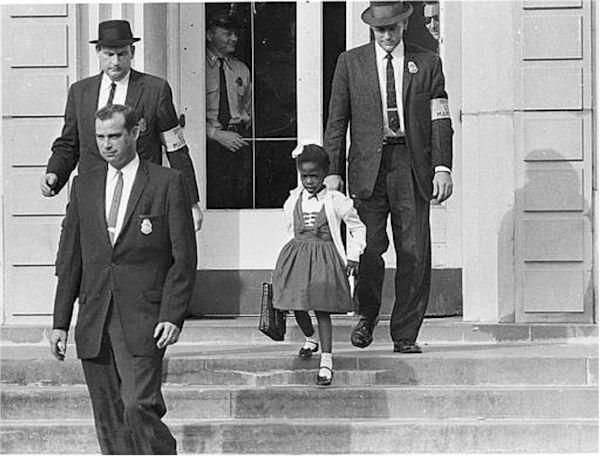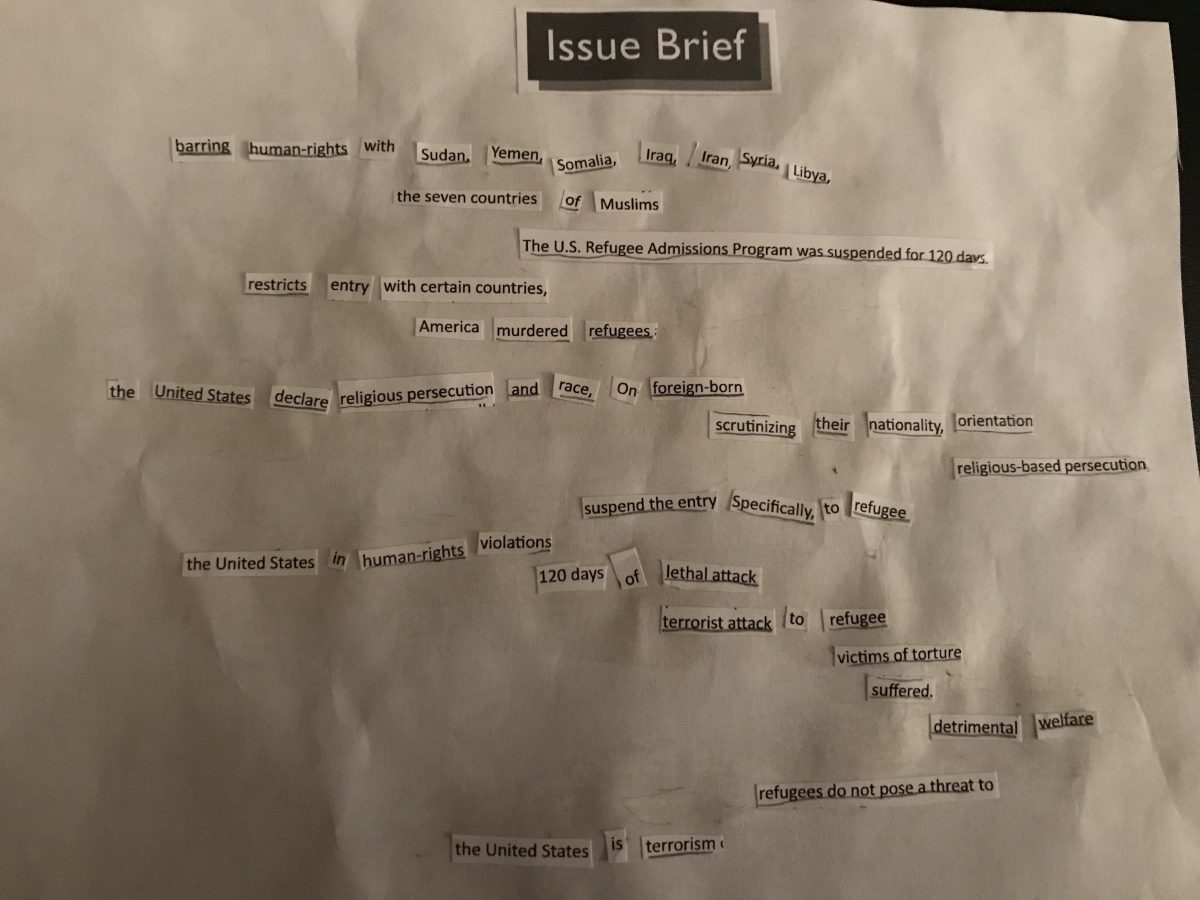Delaney Keenen, Shania Miller, Kailey Valenti
White:
- being a member of a group or race characterized by light pigmentation of the skin
- [ from the former stereotypical association of good character with northern European descent ] : marked by upright fairness
- conservative or reactionary in political outlook and action (“white”)
Etymology: Cognate with Old Frisian, Old Saxon, Old High German, Old Icelandic, Old Swedish, Old Danish, and Old Dutch influences, all in a similar range of senses; further cognate with (with different ablaut grade) wheat n.; probably further related to the Indo-European base of Sanskrit śveta white, bright, śvit- to be white or bright, Avestan spaēta white, Old Church Slavonic svĭtěti to shine, světŭ light, Lithuanian šviesti to shine, although the relationship is difficult to explain phonologically.
In her coming of age novel, Mean, Myriam Gurba recounts her experiences in a darkly humorous manor. The true crime memoir tells of the hardships Gurba faced growing up as a gay, mixed-raced Chicana. Through the use of dark humor, Gurba voices her outrage on the privilege white folk hold in modern day western civilization. She takes the word “white” and gives it several underlying meanings that present themselves through the novel. She takes the word and turns creates a connotation of negativity, devaluation, and separatism.
Gurba uses the word “white” in a way that doesn’t just define the specific color of a person’s skin but rather uses it in a way that devalues it to any other common word. Gurba writes, “…[T]o be in love with a [white] girl…I felt for this white girl…All the [white] girls I fall for are the same…This [white] girl…” (Gurba 57). Throughout the novel, Gurba refers to white girls as just that, rather than names; “White girls.” With the repetitive nature of Gurba’s writing—and the refusal to acknowledge names—Gurba is taking the power from “white.” She reverses the roles from minorities to white and dehumanizes the girls of white race.
Gurba challenges the less than inclusive notion of white dominance–white supremacy: the belief that white people are superior to all other races. When speaking of Western Civilization—the United States in particular–76.6% of the population is white, 13.4% African American/black, 18.1% Hispanic, 1.3% Native American, 5.8% Asian (U.S.). Gurba writes, “[White] girls are the holy grail of Western civilization. I wish they could be replaced with something else. Let there be a new grail” (Gurba 60).Gurba doesn’t bother with sugar coating the obvious; white girls are the poster image for western civilization. Gurba is pushing the boundaries of the picture perfect white girl image of Western Civilization. She is claiming the unjust nature of the lack of inclusiveness to other races. With the already privileged nature the word white holds, Gurba believes that the words “holy grail” and “white” should not be associated with each other. Whites are a constant in Western Civilization–a constant that doesn’t need special privileges when compared to minorities.
Gurba also comments on the effortless power whites hold to survive. Gurba writes, “When do you think [white] girls will go extinct? We are more than a decade into the twenty-first century, and I see no indication of their decline” (Gurba 60). With no mention of another race, Gurba writes about the inquiry of the downfall of the “white” girls. Under the constant attack of racism, minorities are under constant threat of facing extinction. No race leaves untouched by unjust actions due to a prejudice mindset of those different from them; no race aside from being white. Again, Gurba reminds her audience of the never ending presence of white people and their characteristic of prevailing through all.
In addition, Gurba, often uses the word “white” as a negative term which exemplifies Gurba’s feelings about white people. She uses the word to identify the people she interacts with, to create a sense of separatism between races, and to describe why she feels fearful. She says,
“The white girls sat on the opposite side of the classroom, in desks facing ours. They blinked at us. We blinked back. I raised my hand. The English-only teacher said, “Go ahead.” I pointed at the lot of them and said, “They call us wetbacks and tell us to go back to Mexico. Those girls are racists. And she’s not even Mexican.” I pointed at Ida. Ida nodded. White lower lips quivered. White eyes grew glassy. One by one, white girls burst into tears. Ida and all the Mexican girls looked at each other, like seriously? “Apologize for making them cry,” said the English-only teacher. “Sorry,” I said without any sincerity.” (Gurba 20)
In this quote, Gurba is symbolizing separatism. She creates an image of division when she mentions that the white girls and the Mexican girls are seated on opposite sides of the classroom. Gurba identifies the white girls as racists, because of their discriminatory words. She uses the word “white” to identify specific body parts on the white girls, their lips and their eyes. This implies that their race transcends just their skin color, and so it affects multiple parts of their beings. Similar to the negative exaggeration of the anatomy of people of color, Gurba is applying the same thought process to her white counterparts. Gurba may also be trying to use the word “white” as her own discriminatory word against them. The chapter ends with the teacher forcing Gurba to apologize to the white girls even though the white girls were the ones in the wrong. This passage shows how the inequality caused by the division of races and the blatant superiority displayed by her white peers affected Gurba at such a young age. Gurba often use “white” as a negative characteristic, furthermore, she refers to her internal struggle with inequality and race as a “game”. She writes, “I’m going to call this white girl Shaquanda. White people love to appropriate things. By naming the white girl Shaquanda I’m beating them at their own game.” (Gurba 22) Gurba refers to most people she interacts with by their skin color. Gurba’s language shows that she feels that it will always be white people versus non-white people. This further exemplifies the separation she feels from white people, because of the inequality she, her family, and other non-white Americans have experienced.
To Gurba, whiteness inflicts fear. She writes, “Digesting the sight of so many white faces made my hands tremble.” (Gurba 22) Though this last quote isn’t lengthy, it’s extremely powerful. Throughout Mean, Gurba often uses comedy to express the anger she feels towards white people and the inequality caused and continued by them. In this quote, Gurba utilizes description when mentioning how the sight of white people makes her hands tremble. This shows the fear Gurba experiences instead of just the anger or the separatism. Gurba utilizes the word “white” to display her emotions surrounding the word, and to show how the word and its history has affected the equality of people of color.
By using the word white, Gurba is expressing how the concept of whiteness affects a majority of moments throughout her life. She talks about her interactions with white people and how she thinks of them by also using humor. Her humor is harsh and quite dark. Gurba also uses the word “white” to separate her from the group of white individuals. She talks about them being different from her and makes it well know in her story. She quotes “Having white neighbors began the process. Their lifestyle differed from ours” (Gurba 6). In this quote, Gurba is telling her readers that having white neighbors is a new start for her. Being that they are white and she is of mixed races her lifestyle is different from theirs. “It took me years to figure out that white people are white people and that that’s not necessarily a good thing.” (Gurba 6). When Gurba realized that white people were white people she did not think highly of them. This is because of her crucial experiences with white people and the way they treated her and other people like her. By them saying harmful things and displaying prejudice towards her, she considered being white to not be a good thing. Her caution of whiteness also helped to clarify dealing with the differences between her and white people. Gurba also mentioned “Mom’s bone structure put the white mom’s to shame. Her cheekbones were so there and lushy sculpted that they made the white mom’s face look like mash potatoes from a box. Not that the white mom was ugly. Her face just didn’t exude foreign- lady sexiness the way Mom’s did. The white mom’s face exuded Puritanism. Margaine. Thrift. The absence of fun.” (Gurba 6). In this quote Gurba, openly discusses the differences between her mom and the white’s mom facial features. She is clarifying that she thinks her mom is better looking than the white mom because of the way her mom’s face is structured. Even though Gurba says that the white mom is not ugly she expresses how much her face did not have “foreign-lady sexiness” and lacked fun.
In her novel, Mean, Gurba utilizes the term “white” to challenge white dominance in modern western civilization, to identify her relationship and separatism with people who are white, and to give a name to a force which has impacted her day to day life in a negative way since childhood. Though Gurba expresses her feelings about the word through humor, she makes sure that her audience understands the severe impact these injustices have had on her and other non-white Americans lives. Barack Obama’s presidency caused most citizens to believe that we are living in a “post-racial” society, however, slavery was only abolished one hundred fifty-two years ago and segregation was only abolished fifty-four years ago. Relatively, this is not that long ago. Additionally, an article from The New York Times proved how our country’s racist history continues to affect people of color to this day. The article states that for every one hundred dollars of income a white family earns in America, a black family earns only fifty-seven dollars and thirty-three cents. Fortunately, many authors, like Gurba, have forced readers to think differently about whiteness, and the impact of the word, “white”.
Work Cited
Badger, Emily. “Whites Have Huge Wealth Edge Over Blacks (but Don’t Know It).” The New York Times, The New York Times, 18 Sept. 2017, www.nytimes.com/interactive/2017/09/18/upshot/black-white-wealth-gap-perceptions.html.
Gurba, Myriam. Mean. Coffee House Press, 2017.
Uncredited DOJ photographer. “US Marshals with Young Ruby Bridges on School Steps.” US Marshals with Young Ruby Bridges on School Steps, New Orleans , 29 July 2013, commons.wikimedia.org/wiki/File:US_Marshals_with_Young_Ruby_Bridges_on_School_Steps.jpg.
“U.S. Census Bureau QuickFacts: UNITED STATES.” Census Bureau QuickFacts, United States Census Bureau, 1 July 2017, www.census.gov/quickfacts/fact/table/US/PST045217.
“White.” Merriam-Webster, Merriam-Webster, www.merriam-webster.com/dictionary/white.





